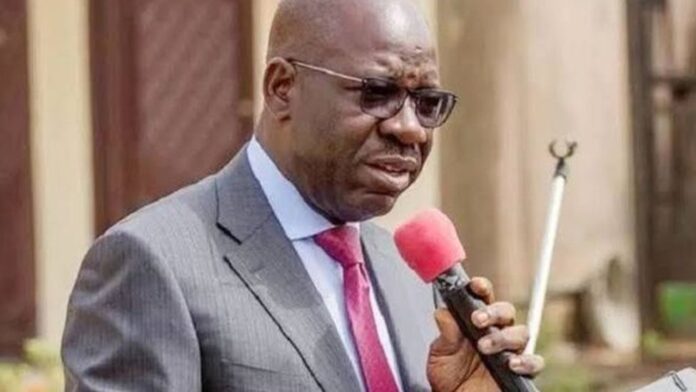The Edo State Governor, Mr. Godwin Obaseki, has said the disruptions caused by the coronavirus (COVID-19) pandemic present an opportunity to reset education in Africa and deploy technology to drastically improve learning outcomes.
The governor said this during a special episode of #EdTechMonday, with the theme, ‘Back to School – But is it back to learning?’ organized by Mastercard Foundations’ Young Africa Works, in collaboration with the World Bank Group, which was broadcast by CNBC Africa.
Relaying how Edo State was prepared for the disruptions caused by the COVID-19 pandemic, the governor said the state had commenced the Edo Basic Education Sector Transformation (EdoBEST) programme, with support from the World Bank Group before the pandemic struck.
“With the scale of disruption caused by COVID-19, we can use the opportunity to leverage technology and digital assets to reset education in Africa. We can do it with the right leadership. We have done it in Edo State. If you can get education right, you can change everything tremendously,” he said.
According to him, “We have been fortunate; we took bold steps three years ago and worked on the foundational level to reframe our education system. We introduced technology system-wide. This worked on the pedagogy and curriculum, as well as the teachers, headmasters and administrators.”
He noted that a major success factor in the programme was the partnership with the communities, which ensured that members of the community took ownership of the schools in their domain.
Obaseki said: “The school is not just another government project, but is owned by the priests, community leaders, nurses, retired teachers and other members of the community. This helps with feedback and gets the government to know what the people really need. This was a different approach that ensured that the people were carried along.”
Senior Economist, World Bank Group, Gloria Joseph-Raji said the Bank’s investment in education has created a model out of Edo State.
She added: “We saw the government’s commitment and prepared a result-based financing programme in the state. We had to take bold steps in investing to improve the quality of education, seeing the different other factors that were limiting access across the country, such as social and gender norms and insecurity.”


